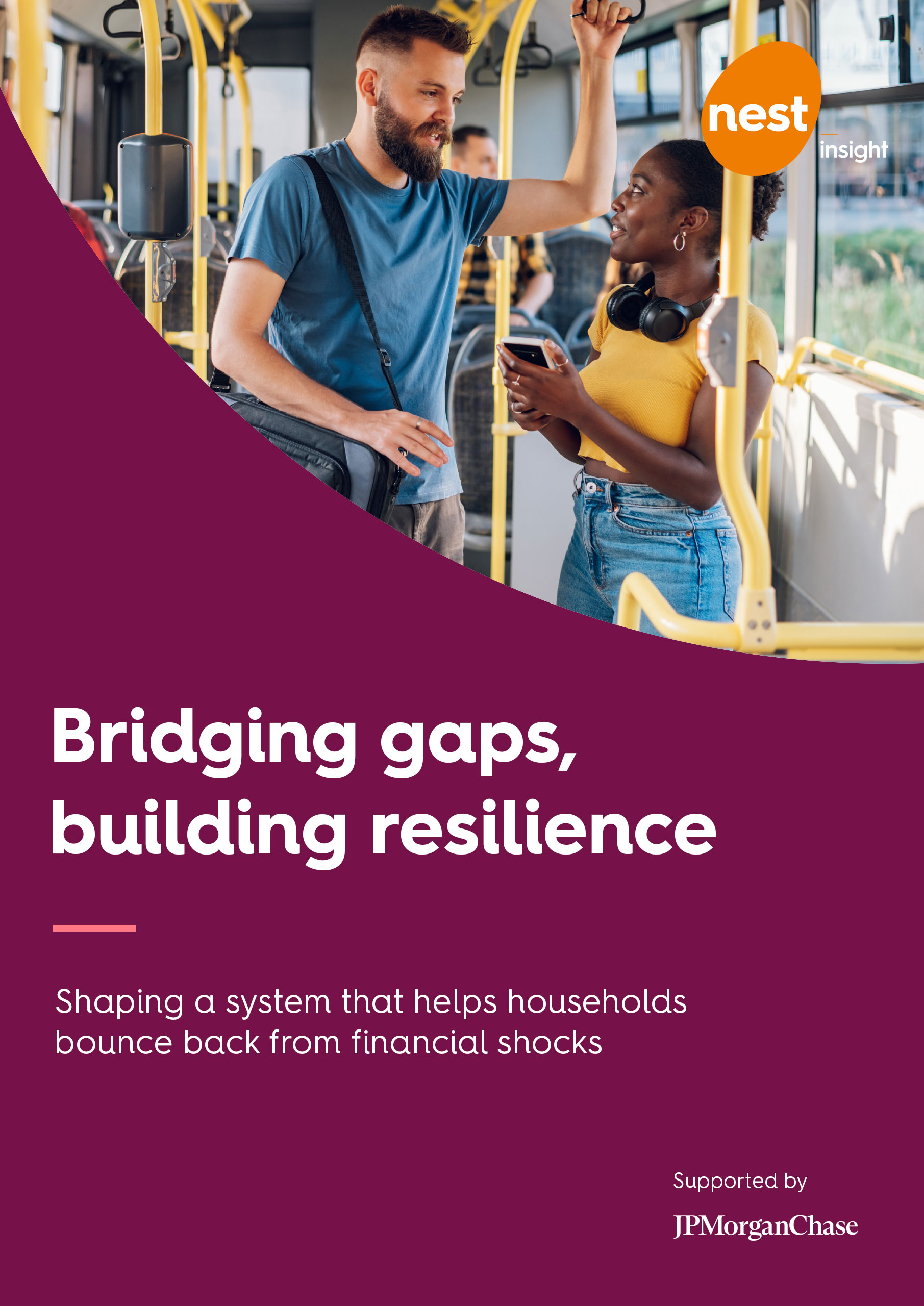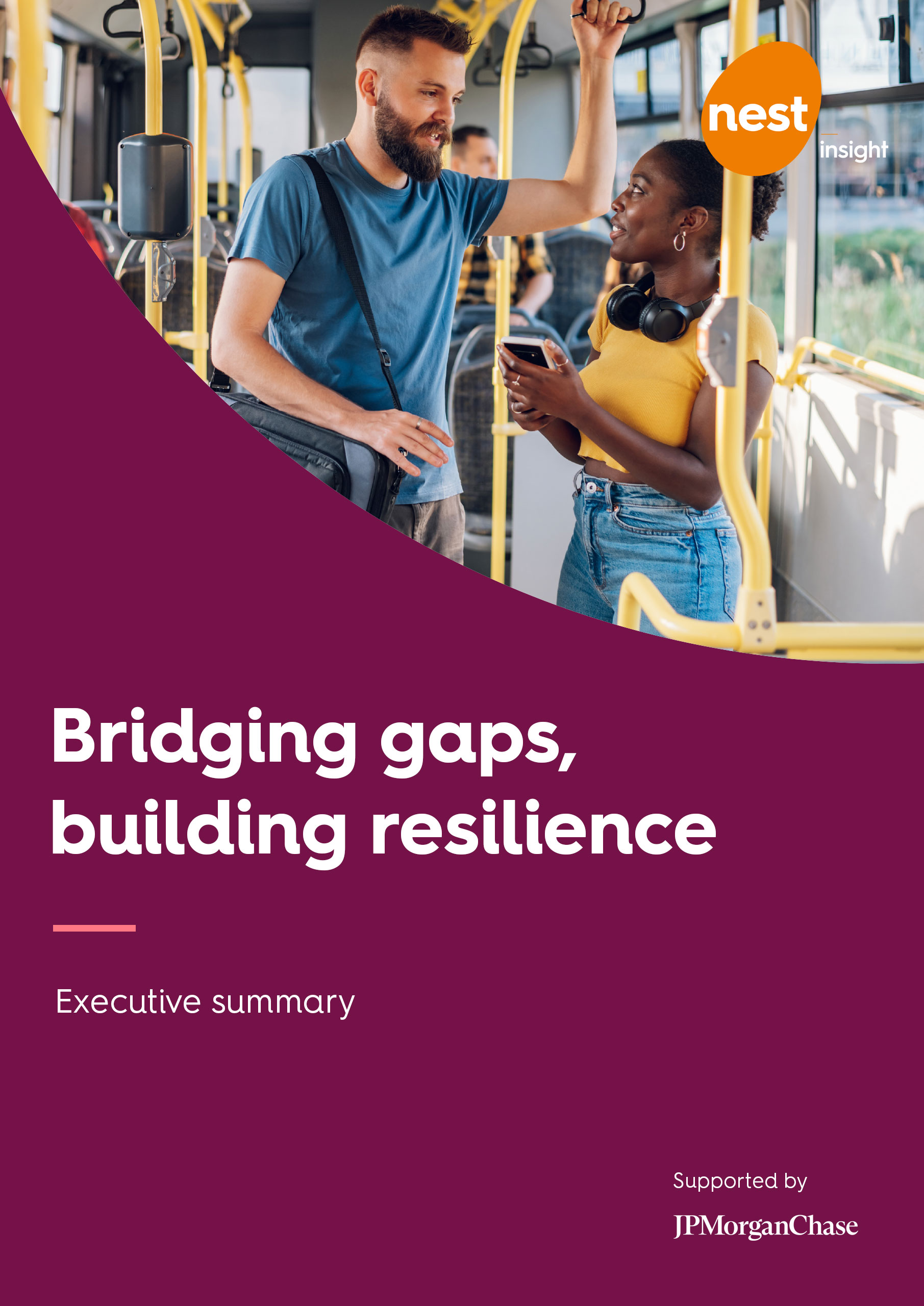Financial resilience
Bridging gaps, boosting resilience – finding better ways to support UK workers to build sound financial footings
The need to build better financial resilience for people across the UK remains acute. It’s an essential part of supporting households’ financial security. And the implications are far-reaching.
Better financial resilience reduces the money-related mental health issues that people on low, moderate and volatile incomes often experience. With more headspace and less worry come fewer sickness absences and avoidable accidents, and increased productivity when in work. It reduces the kinds of hardship which can undermine educational attainment and feed through into lower earning capacity and hampered social mobility for future generations.
People who have financial security today are more likely to save more for the future, and less likely to experience problem debt – and this in turn creates more investment in the broader economy.






